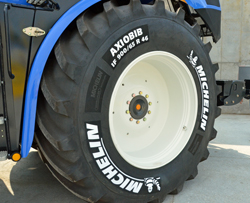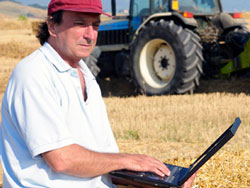 Conservis Corp., the industry leader in farm management software (FMS),has earned the business of six new farm customers in the past two weeks. These six companies represent more than 70,000 acres in five states as well as Russia.
Conservis Corp., the industry leader in farm management software (FMS),has earned the business of six new farm customers in the past two weeks. These six companies represent more than 70,000 acres in five states as well as Russia.
Illinois, Iowa, Kansas, Minnesota and South Dakota customers may now be served by Conservis and in Russia the company added a portion of the ProAgroTech farming operation located in Stavropol.
“As harvest approaches in the Upper Midwest, more and more forward-thinking farmers are engaging Conservis,” said Pat Christie, CEO of Conservis. “We have the most powerful farm management software available, and we are actively helping farmers improve their results.”
Many of the new customers, including Meier Farms in Wessington Springs, South Dakota, were attracted to Conservis because of the company’s recently released Planning & Budgeting module. This module ties together the yearly farm operation from planning, to managing inputs, to managing tasks during the season to harvest and finally comparing plans versus actual reporting.
Conservis’ farm management software provides today’s top producers with the insight needed to be more successful business managers. The result is a more tightly integrated and managed operation. The system is highly adaptable to individual farm needs from data gathering at the field level to full-scale farm workflow and automation. The software is in the cloud and comes with live support providing implementation, training, and continual assistance. The Conservis system currently helps manage more than $8 billion of agricultural land, equipment, inputs and crop assets at all stages of production and is used by some of North America’s most progressive agricultural producers.
Conservis offers a cloud-based platform with business-oriented, farm service-centric software to track activity, manage resources and make better decisions.















